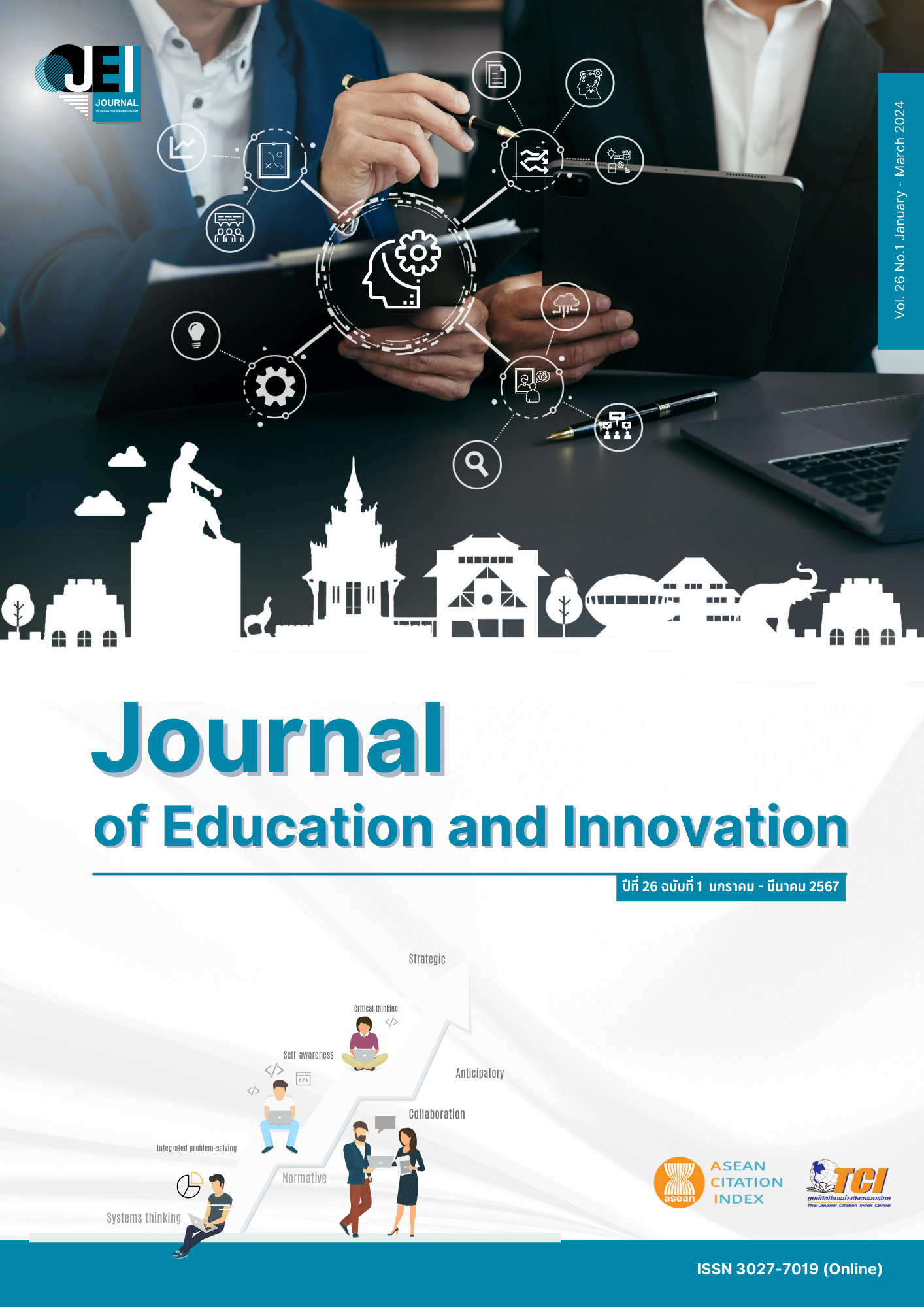DEVELOPING WRITING LESSONS BASED ON GENRE-BASED APPROACH TO IMPROVE INSTRUCTION WRITING PERFORMANCE
Main Article Content
Abstract
This research is an endeavor to investigate the writing development in the genre of instruction through the application of genre-based approach. The participants were 20 university students from non-English major at a private university in Bangkok. A naturalistic participant observation was applied to collect the qualitative data, which are the participants’ written outputs from the writing tasks. The findings revealed that the participants tended to improve writing ability for the creation of the contextual information to encounter the communicative purpose based on the instruction genre as expected. In detail, they acquired the capability in applying the appropriate text organization and relevant language features into their writing effectively.
Article Details

This work is licensed under a Creative Commons Attribution-NonCommercial-NoDerivatives 4.0 International License.
The owner of the article does not copy or violate any of its copyright. If any copyright infringement occurs or prosecution, in any case, the Editorial Board is not involved in all the rights to the owner of the article to be performed.
References
Berendt, E. A. (2010). The roles of uh/um in conversational management and implications for teaching English conversation. New English Teacher,4(1), 104-124.
Cheng, A. (2008). Analyzing genre exemplars in preparation for writing: The case of an L2 graduate student in the ESP genre-based instructional framework of academic literacy. Applied linguistics, 29(1), 50-71.
Chen, Y. S., & Su, S. W. (2012). A genre-based approach to teaching EFL summary writing. ELT journal, 66(2), 184-192.
Cohen, L., Manion, L., & Morrison, K. (2002). Research methods in education. London: Routledge.
Derewianka, B. (2020). Exploring how texts work (2nd ed.). Australia: Primary English Teaching Association Australia (PETAA).
Derewianka, B., & Jones, P. (2016). Teaching language in context. Australia: Oxford University Press.
Derewianka, B. (1990). Exploring how texts work. Australia: Primary English Teaching Association Australia (PETAA).
Dueraman, B. (2015). The crucial point in time where thai students are introduced English language writing. English Language Teaching, 8(9), 96-103.
Foley, J. A. (2011). Grammar meaning and discourse. Bangkok: Assumption University Thailand.
Hammond, J., & Derewianka, B. (2001). An introduction to genre. In D. Nunan & R. Carter (Eds.), The ELT handbook. Cambridge.
Hyland, K. (2003). Genre-based pedagogies: A social response to process. Journal of Second Language Writing, 12(1), 17-29.
Hyland, K. (2004). Genre and second language writing. Michigan: University of Michigan Press.
Hyland, K. (2007). Genre pedagogy: Language, literacy and L2 writing instruction. Journal of Second Language Writing, 16(3), 148-164.
Hyon, S. (2018). Introducing genre and English for specific purposes. London: Routledge.
Johns, A. M. (2011). The future of genre in L2 writing: Fundamental, but contested, instructional decisions. Journal of Second Language Writing, 20(1), 56-68.
Kongpetch, S. (2006). Using a genre-based approach to teach writing to Thai students: A case study. Prospect, 21(2), 3-33.
Ling, M. (2001). How can genre via process approaches support the teaching of EFL writing. Thai TESOL Bulletin, 14(2), 53-58.
Myskow, G., & Gordon, K. (2010). A focus on purpose: Using a genre approach in an EFL writing class. ELT journal, 64(3), 283-292.
Paltridge, B. (2001). Genre and the language learning classroom. Michigan: University of Michigan Press.
Rodsawang, S. S. (2017). Writing problems of EFL learners in higher education: A case study of the Far Eastern University. FEU Academic Review, 11(1), 268-268.
Thu, A. M. (2009). The effects of using a genre-based approach in teaching English writing skills: A small-scale study on undergraduate students in Myanmar (Master thesis). Bangkok: Assumption University.


